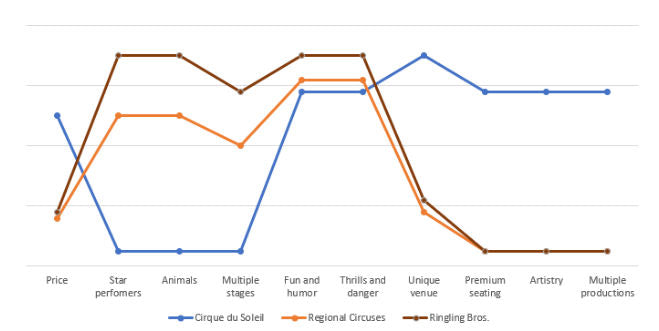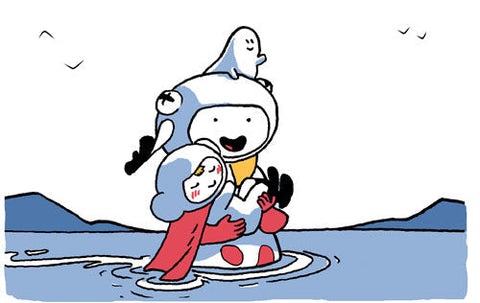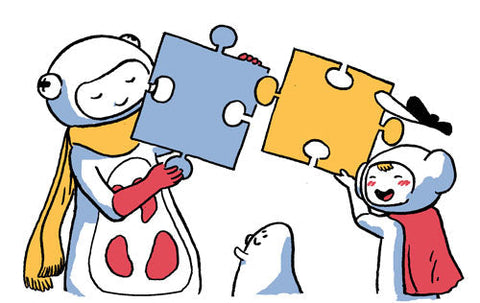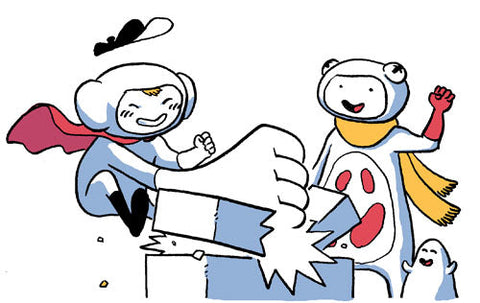Contents
Resources
Coming up with the idea for Workshop Tactics
In early 2019, I was contracting at the Co-op Bank as a User Experience Consultant.
I was forming the idea behind Workshop Tactics - but something kept niggling me.
I was collecting workshops that I regularly use to create a curated list of the best workshops. I had started building a website to house them, but I was worried that what I'm doing is all the same as everything else out there.
There are dozens of brilliant and fantastic workshop resources, such as the magnificent Gamestorming book by Dave Gray, Atlassian's Playbook, and Hyper Island's Toolbox to name a few.
Why do I want to create yet another workshop resource?
There's no point, I thought - I'm just adding another thing on top of the heap of workshop exercise resources already out there.
In a moment of massive self-doubt and frustration, I deleted the Workshop Tactics website, discouraged that I had identified no discernible uniqueness and my efforts were going to amount to another side-project that goes nowhere.
One evening, I stumbled upon a business book Reddit thread and saw a book that looked interesting - it promised how to stop about competing with your competitors. Could this have the answer to my problem?
Workshop Tactics was hardly a business - I thought, it was just an idea at this point. I added the book to my Audible wish-list for a future listen and went back to the drawing board. My intention was just a rehash of everything else already out there.
I decided to abandon the idea
Weeks go by, and I couldn't shake the Workshop Tactics idea. I couldn't stop thinking about it. There was something deep inside me that knew there was an untapped opportunity - that I could do it in a new, valuable and remarkable way. I bought the book and listened to it in the next few commutes to work.
The book was called Blue Ocean Strategy by Renée Mauborgne and W. Chan Kim. It sounded something akin to "Blue Sky Thinking", and my initial thoughts were that it'd be a jargon-filled business-speak book that could've been a blog post. Precisely the opposite of what I was trying to nurture with Workshop Tactics.
Despite this, I carried on - it began by talking about Cirque du Soleil, and how they forged a brand new market for themselves over traditional circus acts. I found it hard to visualise without seeing the value curve it kept referencing - so I started doing some more reading online.
What is The Blue Ocean Strategy Canvas?

Blue Ocean Strategy is a way of measuring your level of service offering across different factors of competition.
The Y axis is level of offering.
The X axis are the different factors of competition.
By plotting multiple competitors across the different competition factors, patterns start to emerge called a "value curve" which gives a visual representation of the characteristics and positioning of each business.
How do you create a Strategy Canvas?
-
Choose up to four of your direct or indirect competitors. For example, an indirect competitor to an airline is a bus service.
-
List all of the factors of competition along the X axis.
-
For each competitor, score them out of 10 on their level of offering for each particular factor of competition.
-
Plot your own level of offering for your business, as you are now. You may find you are following a similar curve to your competitors.
-
Find opportunities to eliminate, reduce, raise or create particular competition factors. This will help you differentiate your value curve, and thus create a new market of competition.
Create your own Strategy Canvas
It was clear how Cirque du Soleil eliminated certain aspects and created new ones, to position themselves in an entirely new "blue" ocean - as opposed to a red ocean, which is full of blood from all the competition fighting each other!
I started to see how I could use this to see my value curve against my competitors. This was the beginning stages of working out my product differentiation strategy.
I completed my graph and felt a great sense of satisfaction as I saw they all followed the same value curve.
Workshop Tactic's competitors:

I plotted Workshop Tactics, and it became clear what I needed to do to create my own "Blue Ocean". The book asks you a simple question: what factors of competition will you eliminate, reduce, raise or create to give your business a unique value curve?
My strategy canvas helped me pick out this strategy, purely by going in the opposite direction of my competitor's value curve.
For my product differentiation strategy, I would:
-
eliminate being free by creating a premium high-quality product.
-
reduce choice, content length and complexity, in turn making a short and straightforward resource.
-
raise the readability, and eradicate jargon, by making the instructions dead clear and straight forward. I would "raise" the aesthetic and functional design of the content delivery, and centre it around a robust and playful brand.
-
create something physically shareable, fun, tactile with a strategy system on what workshop to run before and after.
Workshop Tactics Strategy Canvas

There, I had it on paper - exactly what I was going to do, and how I was going to be unique; a comforting feeling indeed!
In the coming weeks, as I started to gain momentum with the idea - friends and colleagues sent me similar things they thought might offer inspiration.
However, they only served to shake the excitement out of me as I saw how seemingly saturated the market was with card-based resources, mainly centred around creative and design thinking workshop exercises.
Another wave of doubt
It felt like there wasn't a blue ocean for Workshop Tactics.
It was beginning to become apparent that my struggle was psychological, rather than anything rooted in facts. My own worst enemy was myself. I was getting in my way. I was never going to get anywhere with this attitude.
But I thought, no! The physical aspect with a unique and playful brand is what will make Workshop Tactics unique! And the strategy system! No one has done that.
Was having a great brand just a gimmick? Was my workshop strategy idea too simplistic? More and more I was seeing similar products or ideas floating around.
I couldn't bear it, to be another face in the crowd. I had to face my fear; it was impossible to be unique. There is no such thing.
Competitors are inescapable
One morning, a co-worker sent me a link. It was the final nail in the proverbial coffin of my feeble mindset.
IDEO, a heavyweight non-profit design organisation, who wrote the Field Guide to Human-Centered design had successfully raised over $200k on Kickstarter for their Field Design Cards.
Simple instructions, a great curated list of techniques, the IDEO brand attached to it. How do you compete with something that good, from a brand with that level of gravitas?
I felt like giving up. I was agonising myself over this, and I had barely begun. It just wasn't worth the mental strain. I had never expected to get so hung up on what everyone else was doing. The saying is "mind your own business" - but I just could not.
A breakthrough conversation
I was explaining my plight to a friend who had asked me how the Workshop Tactics idea was going. I recounted my misery over worrying about how there is so much out there, in such a similar way - that I felt it wasn't worth doing.
Something they said to me struck me: "None of them have been made by you, though".
This conversation was a breakthrough moment for me.
My friend was right.
I am my competitive advantage.
I am going to make it unique, and it'll be unique because I made it.
If all the content is similar (workshop exercises), then what truly differentiates everyone from each other?
Branding and marketing is everything
As marketing entrepreneur Seth Godin preaches, make art, and be remarkable. And so I will - I will make extraordinary workshop cards!
I started to hone the brand identity with my good friend and illustrator Dave Hill. It felt like something special was coming together. I began to feel excited and was soon falling in love with something that was a part of me, incarnated into the world.

The first version of the Workshop Tactics brand was born, it had some refinement to go - but it started to feel like something different. Something that was mine!
Then there was that familiar niggling thought at the back of my head - no one is going to like this, it's too different. Is it too childish? You aren't the first to use cartoon characters and a serif font. It's cute that you tried though!
A revelation that changed my mindset
Finally, I had had enough of myself. I reflected on my journey to this point, and I realised something profound:
For my business' product positioning, it's a combination of what you have eliminated, reduced, raised and created that makes you unique - not one aspect itself.
There are hundreds of car manufacturers out there, that doesn't stop someone creating a new car brand. Elon Musk eliminated internal combustion engines from his automobile line-up, he reduced the range of models available, and most importantly, he created fast sexy electric cars.
I wonder if he had the same worrisome thoughts as me?
"What's the point, other people have already made electric cars!"
I highly doubt it.
Closing thoughts
I had come to accept that, like any industry - there is always something similar out there. You have to find what makes you unique. And sometimes, just the fact that YOU are doing it, and HOW you are doing it, makes it unique by default.
The Blue Ocean Strategy seemed like a distraction at the time. Now it has become my marker in the sand. I have a complete and narrow focus on my uniqueness. It had been right in front of me all along.










